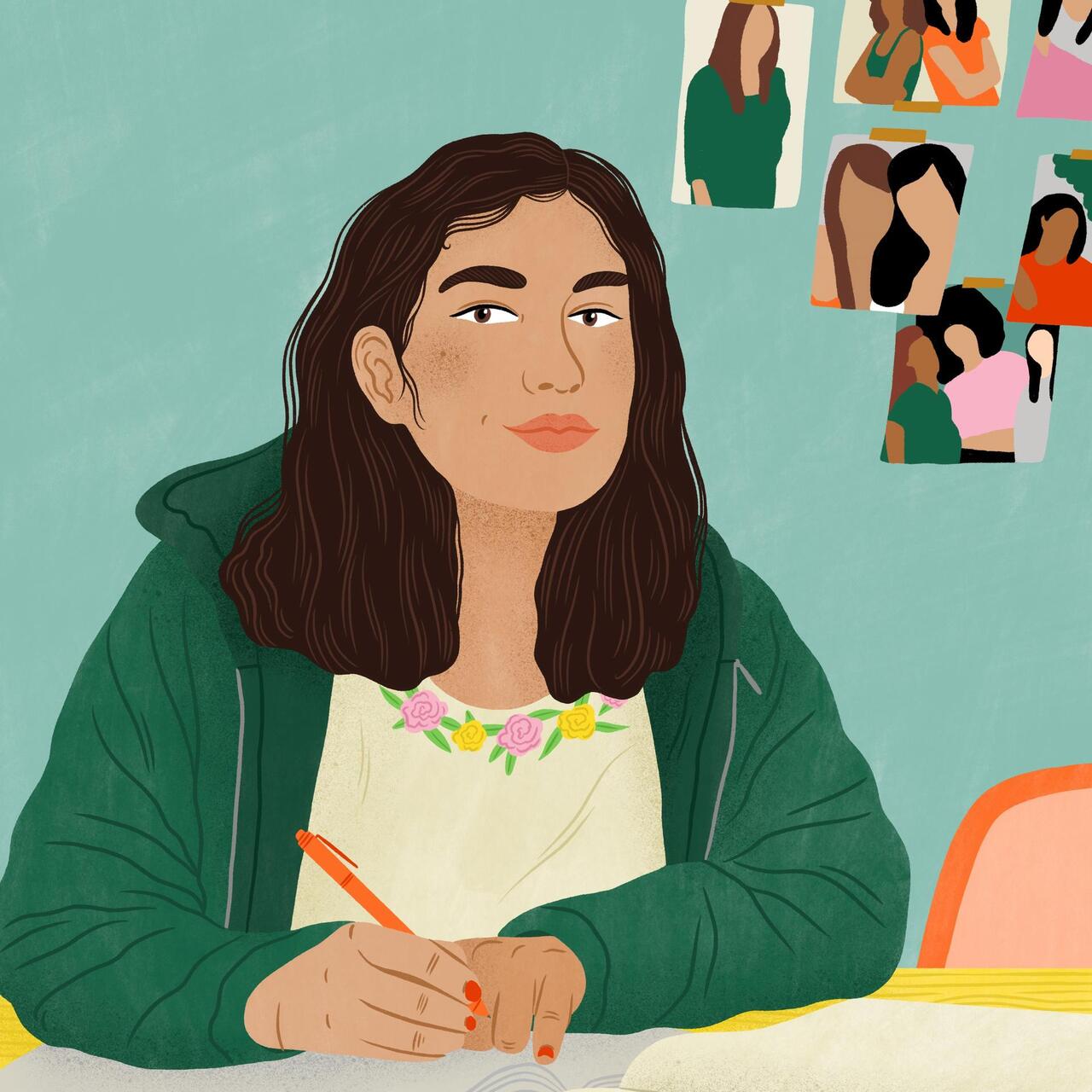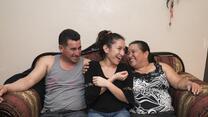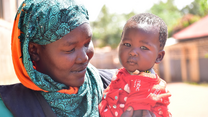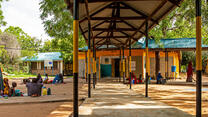
These are the stories of Valentina, Laraba and Razia — women who have been affected by conflict, working to reclaim their lives and help others.
Around the globe — but especially in crisis zones — women and girls face violence, discrimination and a lack of opportunities that threaten their lives and rob them of their potential. But with the right support and access to education and employment, they can change their futures.
The International Rescue Committee teamed with renowned illustrator Bodil Jane to show that women around the world, despite their differences, all fight the same battle—to make equality a reality.
There are no limits to what women can accomplish

Valentina, 23, has a long list of female heroes: J.K. Rowling, Kathryn Stockett, Frida Kahlo, Rigoberta Menchú, and her namesake, Valentina Tereshkova, not to mention her mother, her sisters, and her two best friends.
“All these women are connected for many reasons,” Valentina says. “But above all, they are strong, hardworking women with education as a solid foundation for a better life.”
Valentina, who fled El Salvador for the United States after receiving threats from dangerous gangs, was resettled by the IRC in Dallas. She was forced from her home the year she was to finish her undergraduate degree in psychology. Now she is taking English classes and studying for her GED.
“I want to do what the IRC did for me, help people in need,” she says. “I want to show people going through some scary and difficult experiences that there is a light at the end of the tunnel.”
Valentina also wants to help others move forward in their lives as she has. “I want to go back to college and finish my psychology degree and work with children.”
I run my business with boldness.

After an armed group invaded her village in northeast Nigeria, Laraba fled with her younger brother, Solomon, and settled in Yola, a city almost 200 miles to the south.
“I didn't have anyone to help me,” she says. “I was the eldest, so I thought about how I could help my brother go to school. I wanted to pay for his school fees.”
Laraba started to grow beans to generate income, spending her small savings on farming supplies and seeds. With the support of the IRC and the Citi Foundation, Laraba enrolled in an entrepreneur training program. She gained new business skills, evaluated her local competitors and anticipated the needs of her customers.
“I can work morning, afternoon and night without stopping or saying I'm tired,” she says. “I’m not afraid of work.” Laraba dreams of becoming the most prosperous bean seller in her community.
“I am now providing advice to other women who don’t have knowledge on how to manage their business and finances,” she says. “Through my advice, they [are starting to] overcome these challenges.”
With bravery and confidence, women can overcome anything.

Razia, 47, a Rohingya activist who has dedicated her life to helping refugee women, was born in Myanmar, where Rohingya Muslims have been persecuted for decades. She runs a women’s centre in the world’s largest refugee camp near Cox’s Bazar, a district in Bangladesh hosting thousands of Rohingya refugees. In 2017, Razia became the first Rohingya to speak to the U.N. Security Council about women’s rights and ending violence.
Razia was inspired to pursue her vocation by several female figures, including her mother, one of her teachers, and Mother Teresa.
“I have the same ability as men” she says, adding “It’s [about] working together, not behind or in front, but side by side. One thing I believe is that women can survive in any kind of environment.”
How the IRC helps women
The IRC is working to ensure gender equality is a cornerstone of all of our programmes, so that women see real improvements to their safety, education and economic wellbeing. We are improving access to health centres and giving more women and girls the care they desperately need. We are developing new projects that support adolescent girls to stay in school and realize their potential. We are supporting more women with economic empowerment and cash assistance in emergencies. And we are finding new ways to empower women and girls and change harmful gender norms to create more equal communities.



